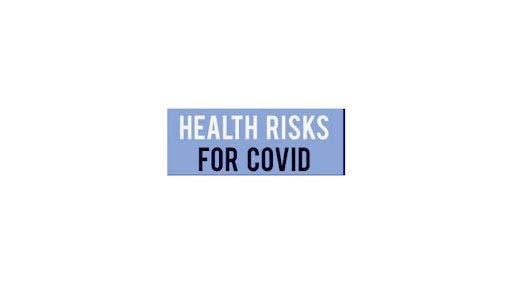31 January 2022
M?ori communities at a dangerously high risk of Omicron spread need more support to prepare for isolation, infection and illness, researcher R?wiri Taonui warns.
I believe the information given out by Radio New Zealand today, Monday, might prove to be useful for general advice and guidance to those in the communities in the Solomon Island that might possibly also be considered in the category of “high risk” from contracting Covid.
Here is the full text of the Radio New Zealand news bulletin.
Quote.
The M?ori health analyst said the unvaccinated and the anti-vaxxer community, the poor and disabled, and M?ori and Pacific communities were most at risk.
He said higher comorbidities (the presence of two or more diseases or medical conditions at the same time), lower access to health services, and social and economic inequity put M?ori at greater risk.
"M?ori have an elevated risk of infection because of higher comorbidities including cancer, high blood pressure, heart disease, respiratory illnesses like asthma, diabetes, obesity, liver or kidney disease, inflammatory conditions, immunodeficient states and autoimmune diseases," Taonui said.
"M?ori also face risk because of lower access to health services. Many M?ori in areas like Te Tai R?whiti, Northland, the West Coast and the Bay of Plenty live some distance from emergency health care. Health care in many larger M?ori population semi-rural areas lack adequate ICU capacity."
Taonui said socio-economic factors and the younger age of the M?ori population created a specific higher transmissibility risk that Omicron could easily exploit.
"For instance, more M?ori live in overcrowded or temporary housing. Our population is younger and more social. "Each is a vector for higher transmission.
"M?ori are also disadvantaged because the sorts of things we need for isolating at home - a reserve of kai, basic medical supplies, things like masks, disinfectants - our poorer populations are going to struggle to supply those."
Taonui said during the high numbers of infections widely expected in an Omicron outbreak, the health system would be under significant pressure and there would be supply interruptions with higher numbers of workers sick and isolating at home.
Many M?ori homes and communities would be left to care for themselves, as happened during the Spanish Flu epidemic, he said.
"In 1918 we [M?ori] were a very poor community and so we suffered disproportionately. There's a risk that we repeat that with Omicron.
"We need a rollout very similar to what we had in March and April 2020, when care packages, food parcels, basic medical supplies can be delivered to homes that are in need, otherwise we're facing something really serious."
He suggested wh?nau who were struggling to ensure they had basic supplies at hand should link with community groups that deliver food parcels. The welfare initiatives in place were largely being led by M?ori and community health providers and needed to be adequately resourced by the government.
"The priority for M?ori communities now is to plan to look after people isolating or ill at home and to protect the rest of the wh?nau from infection. Stockpile some kai to last four to seven days. A second priority is to gather together some basic medical supplies that we might use for head colds and flu. They won't cure Omicron but they'll mediate some of the symptoms and reduce the chance of being hospitalised."
Taonui provided a 10-point list to help wh?nau prepare for an Omicron outbreak:
· 1. Develop a plan for isolating infected members of your wh?nau separately from others at home.
· 2. Face coverings, gloves, hand sanitiser or other disinfectant, tissues or old towels, rubbish bags and basic budget surface cleaning supplies will be important items for protecting your wh?nau. Most off-the-shelf ready-to-use general kitchen, laundry and bathroom surface cleaners are multi-purpose.
· 3. If possible, try to have enough food for the household for up to seven days.
· 4. Many wh?nau will be unable to afford such a reserve. In that instance, it is important to connect and let other wh?nau, M?ori or mainstream community initiatives like food banks know your situation so that they can provide support.
· 5. Gather things together that we use when we have a bad head cold or flu, like Paracetamol, Ibuprofen, throat lozenges, ice blocks, drinks, soup sachets and vapour rubs. This will be challenging for many wh?nau. Budget brands from supermarkets or online are often the same and much cheaper than more expensive brands. These will not cure Covid-19 but they will help manage symptoms.
· 6. If you are isolating at home, find someone outside your household who would be able to help with delivering food, medicines or other essential items.
· 7. If the house has more than one bathroom, one should be allocated to Covid-positive people. In households with a single bathroom, clean surfaces after every use, leave windows open and fans on.
· 8. Do not hesitate to reach out for help or advice from mainstream or M?ori health providers, Ministry of Health online services or other community groups. M?ori providers will understand your situation best. Your welfare is important.
· 9. Do not neglect your mental health. Books, games, craft or DIY activities, access to the internet and streaming services can all help keep boredom at bay.
· 10. If comfortable, hang a sign or Covid-19 Tracer QR Code on your door advising visitors that you are isolating.
·
End of quote.
Footnote.
Local Democracy Reporting is Public Interest Journalism funded through NZ On Air
Copyright @ 2022 @ Radio New Zealand.
Yours sincerely
Frank Short



